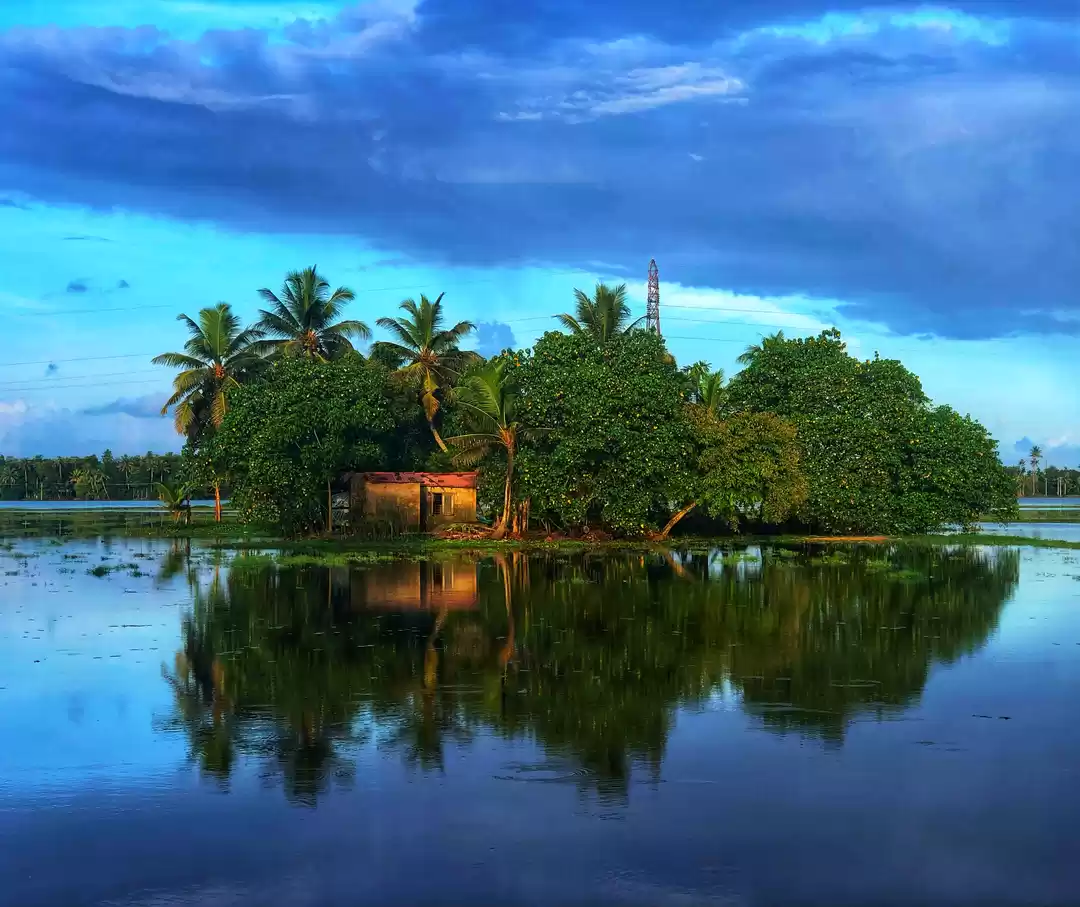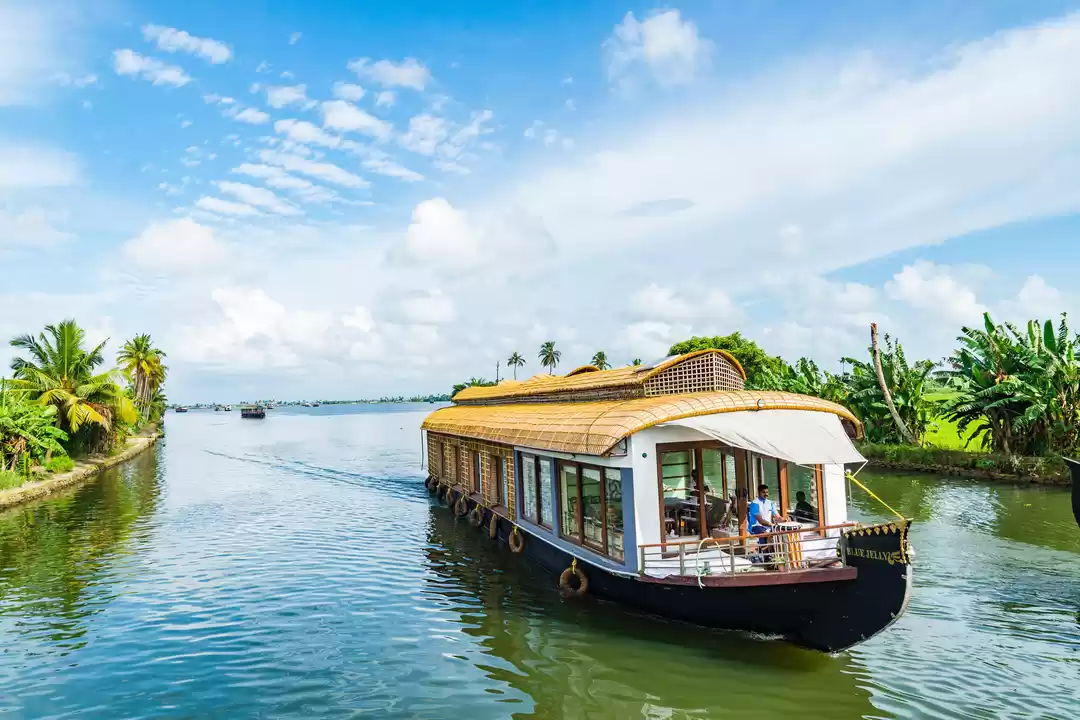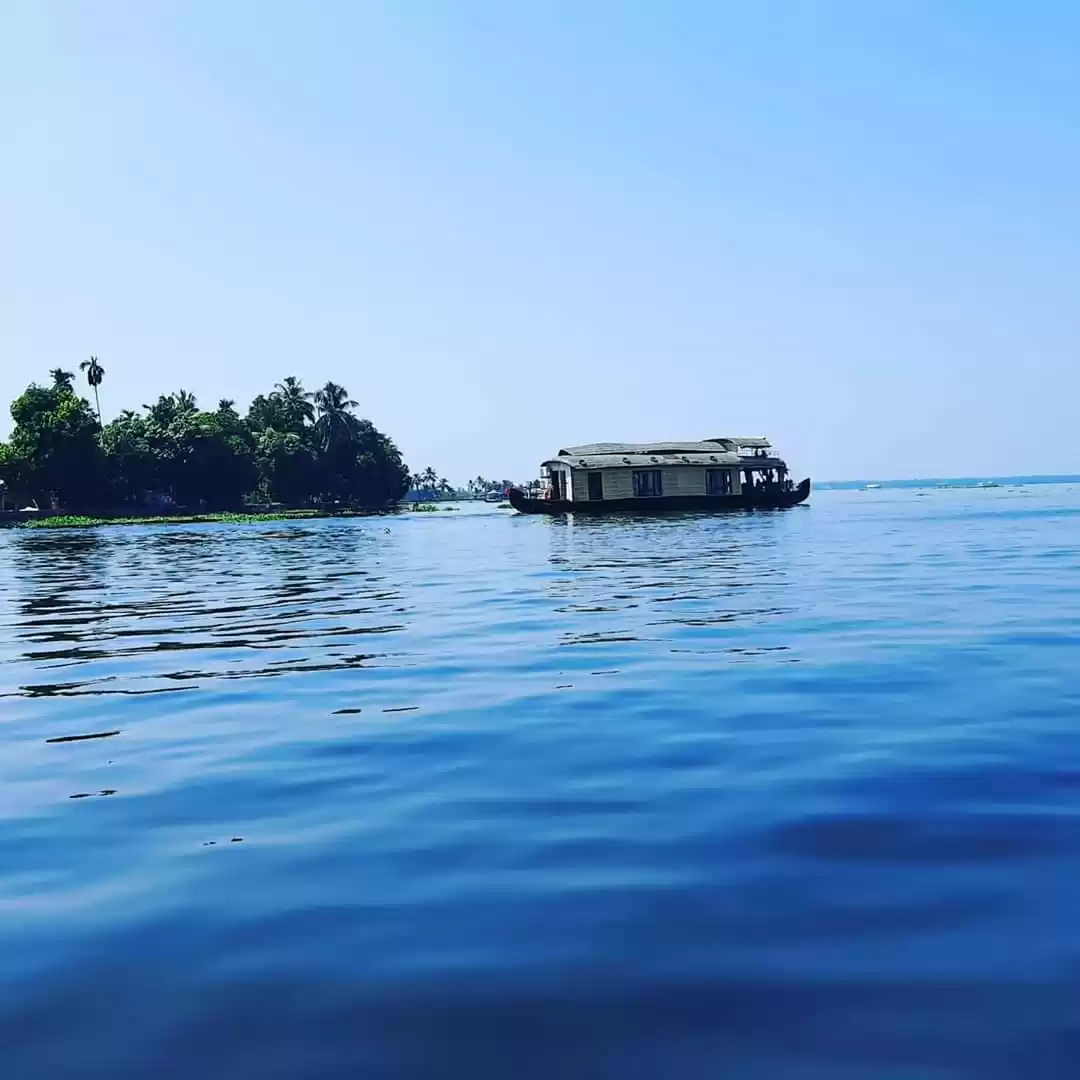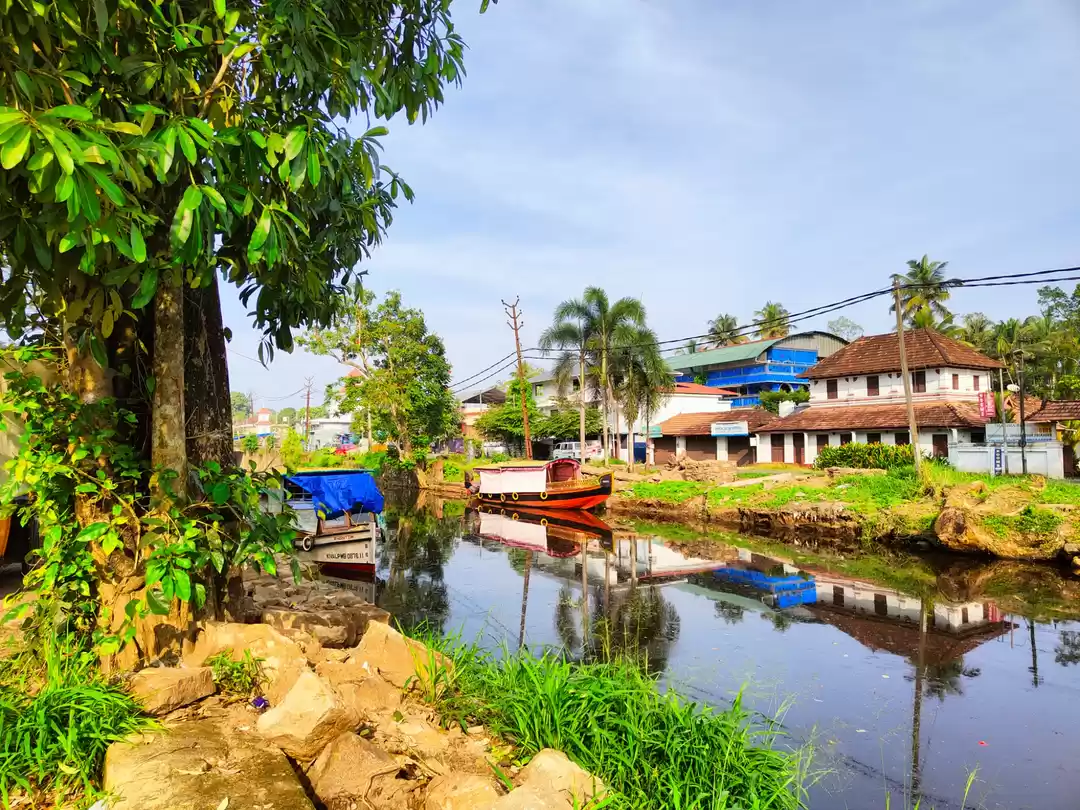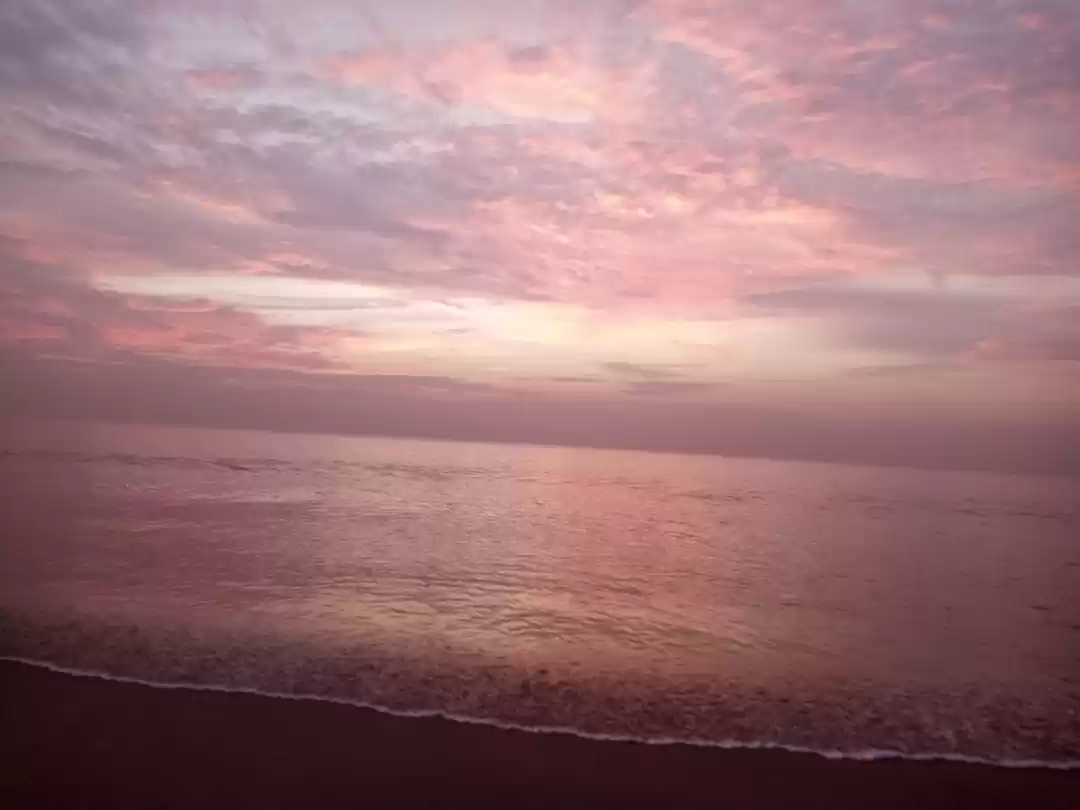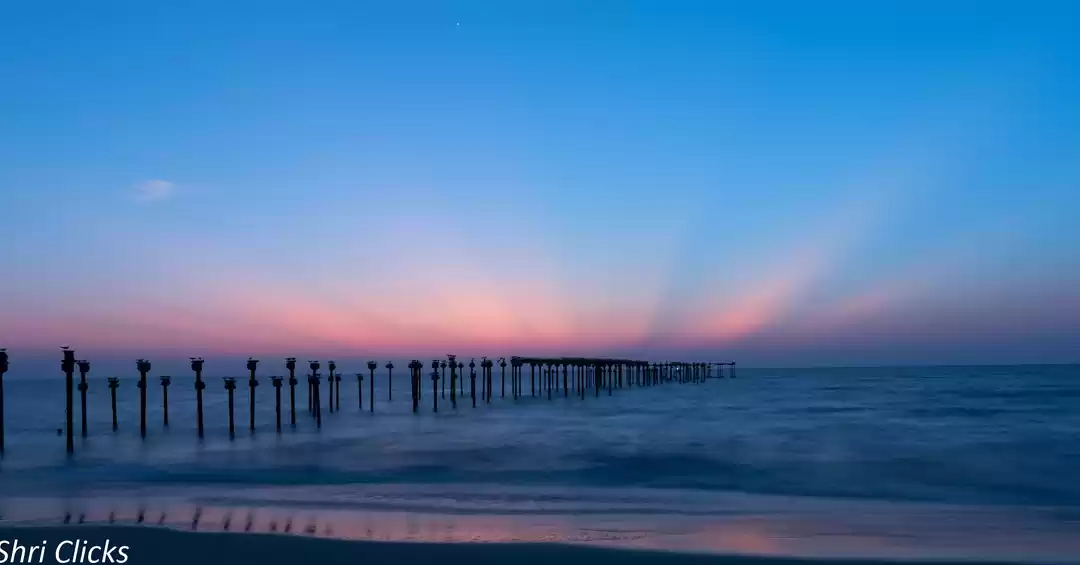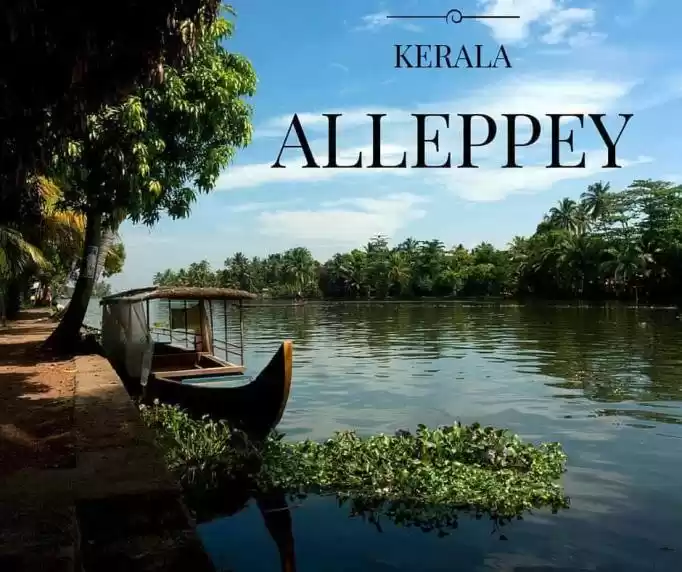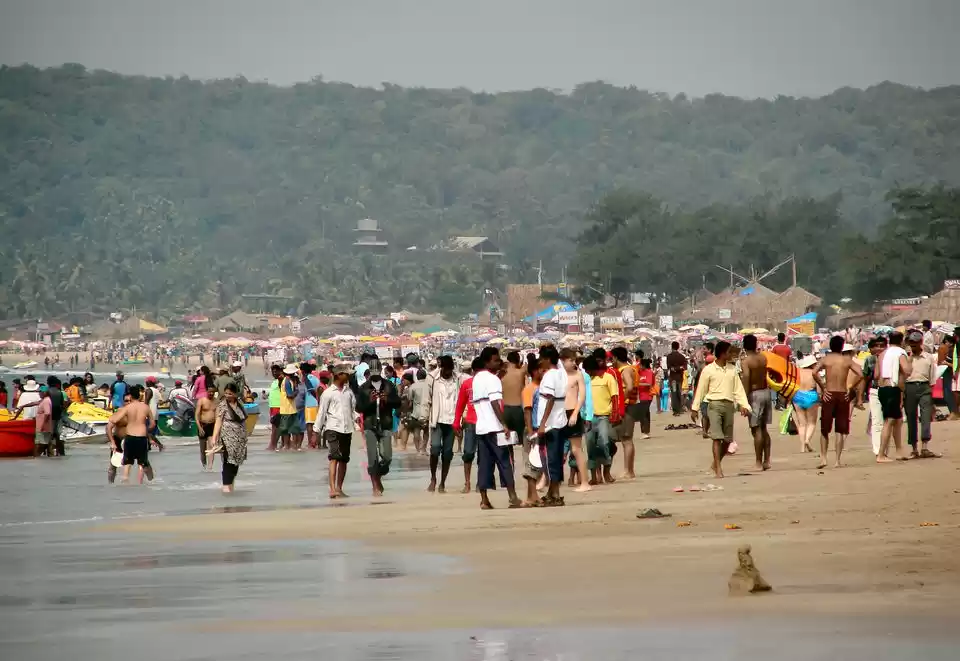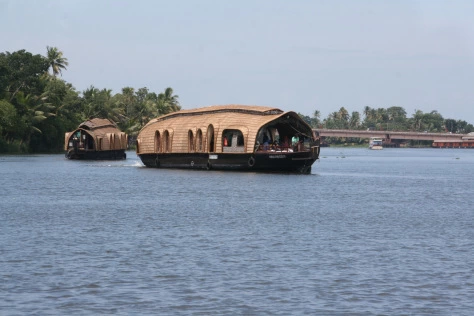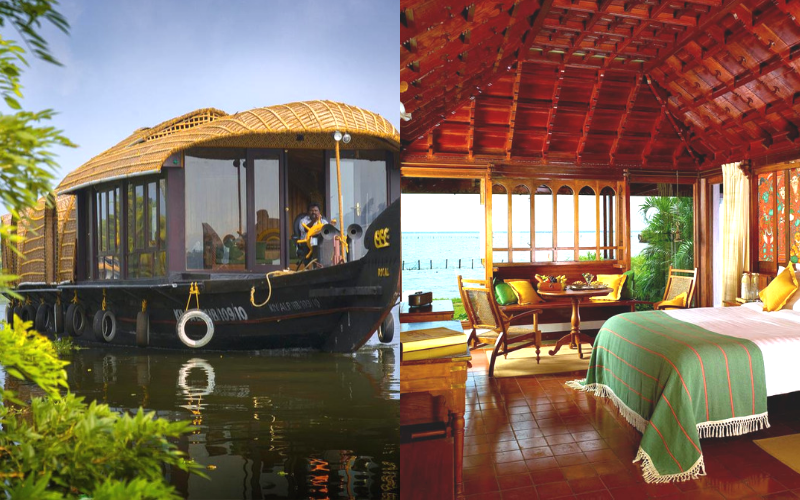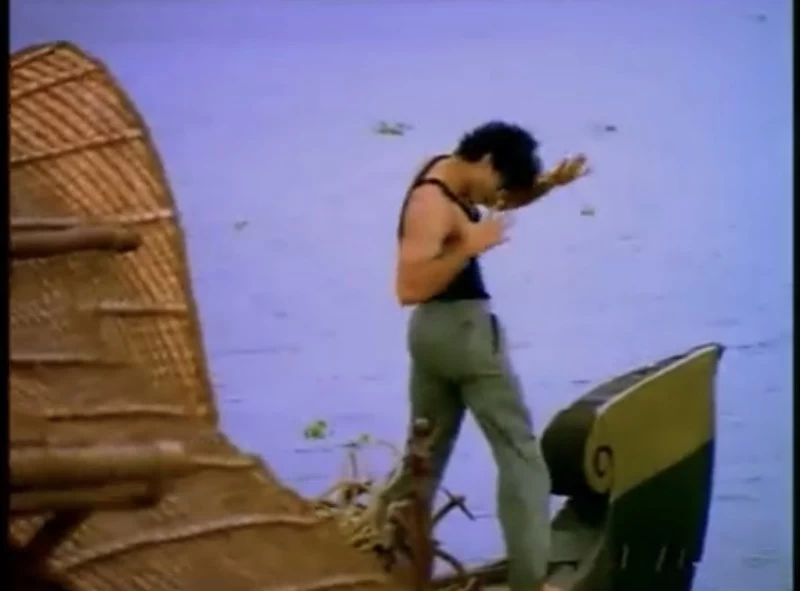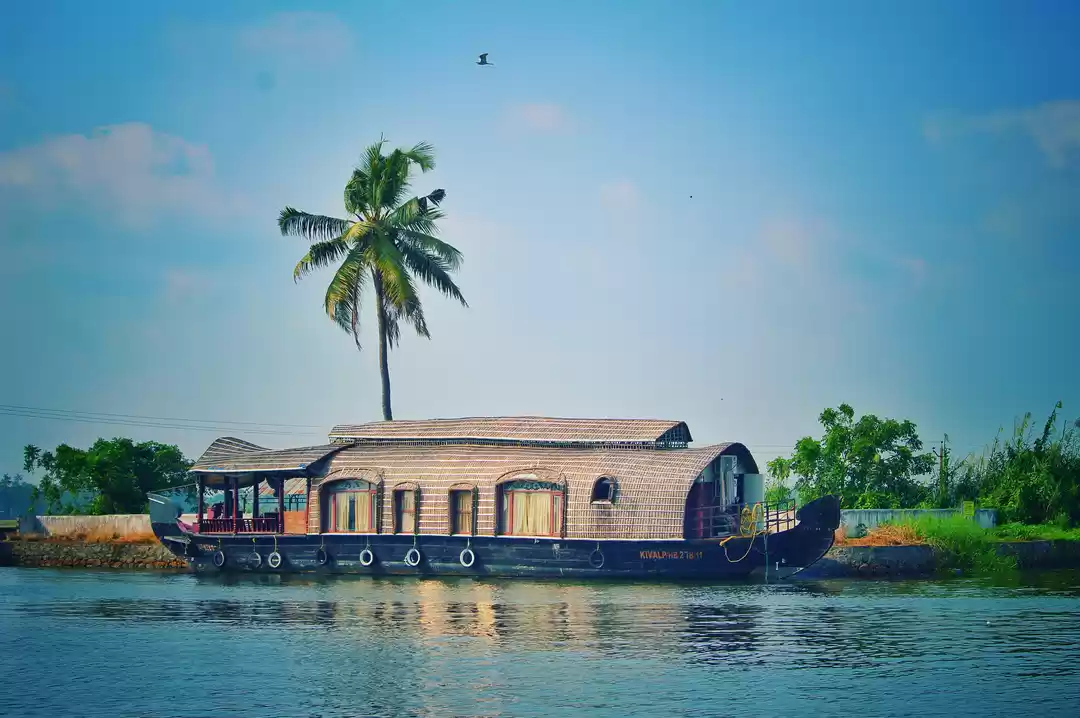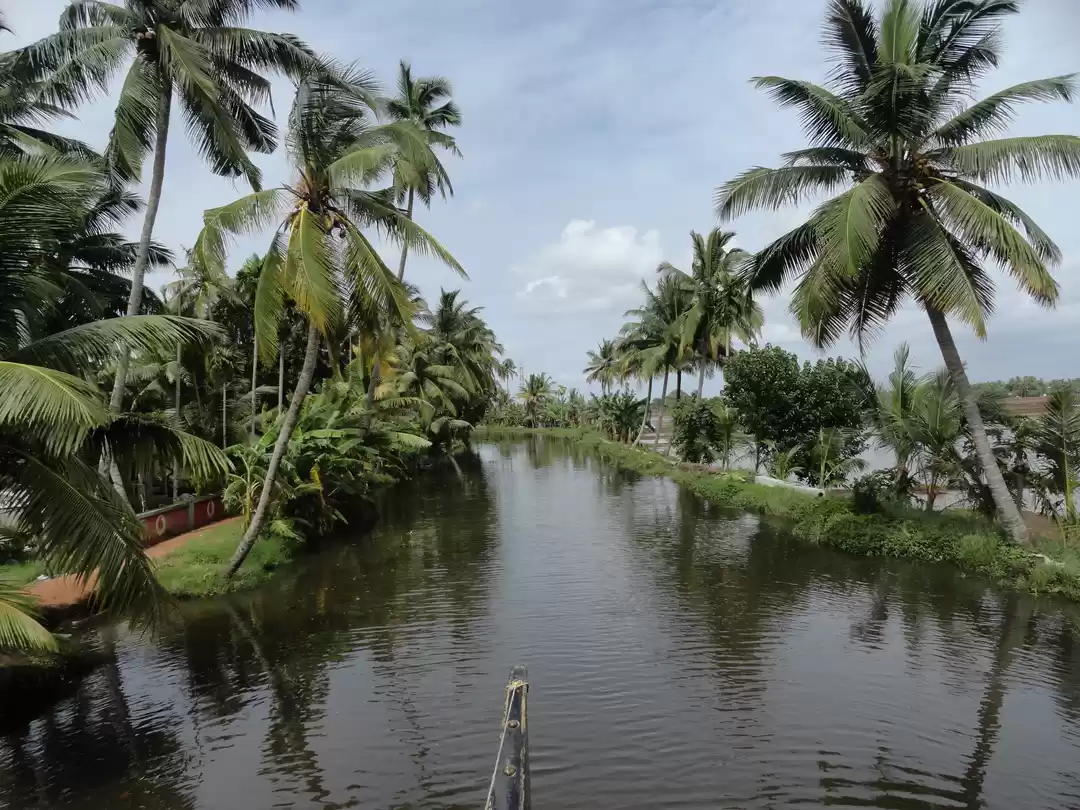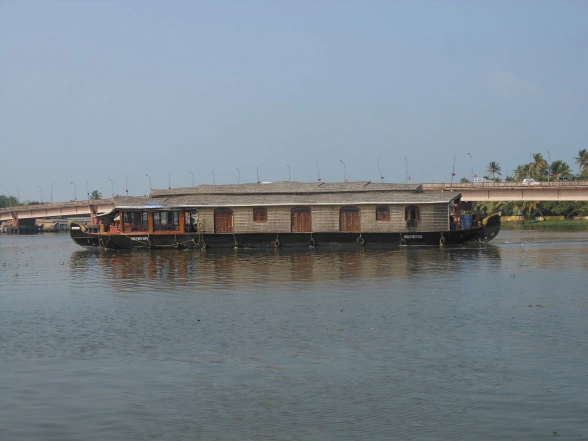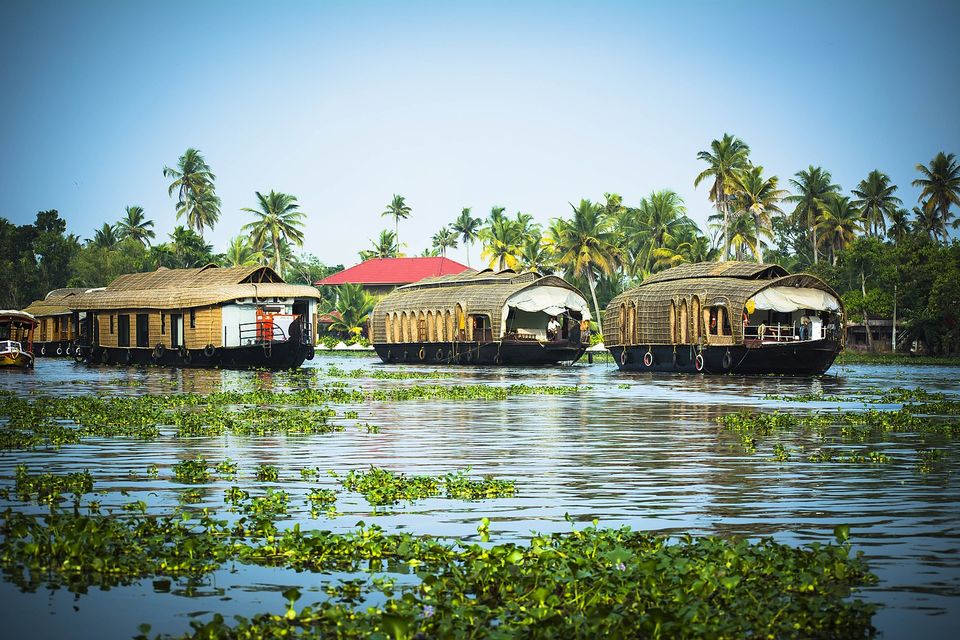
The first thing that comes to mind when someone mentions Kerala is an image of the idyllic backwaters – sailing into the sunset on a kettuvallam (traditional boat) as you sip on coconut water.
The truth, sadly, is very far from this picture perfect description.
I had first visited Kerala in 2008. Extremely excited about the backwater experience, I remember vividly how my face fell when I saw a pile of garbage choking up a stream that had made its way inland. The other highlight of the trip was the stench coming from the water as we took a boat ride in the Alleppey Canal.
Now, almost a decade later, the situation remains the same, if not worse. Akanksha Magan, a travel writer, who went for a houseboat stay in December last year, says, "Till the boat starts sailing and goes to the open waters, there is an unmistakable stink in the air. And on our houseboats, since the rooms were below the deck, the smell had penetrated inside."
Current state of affairs
The smell, however, is just a side effect of the deteriorating condition of the backwaters – garbage choked canals, oil spills, dumping of faecal matter in the water and a layer of algae that covers the stagnation.
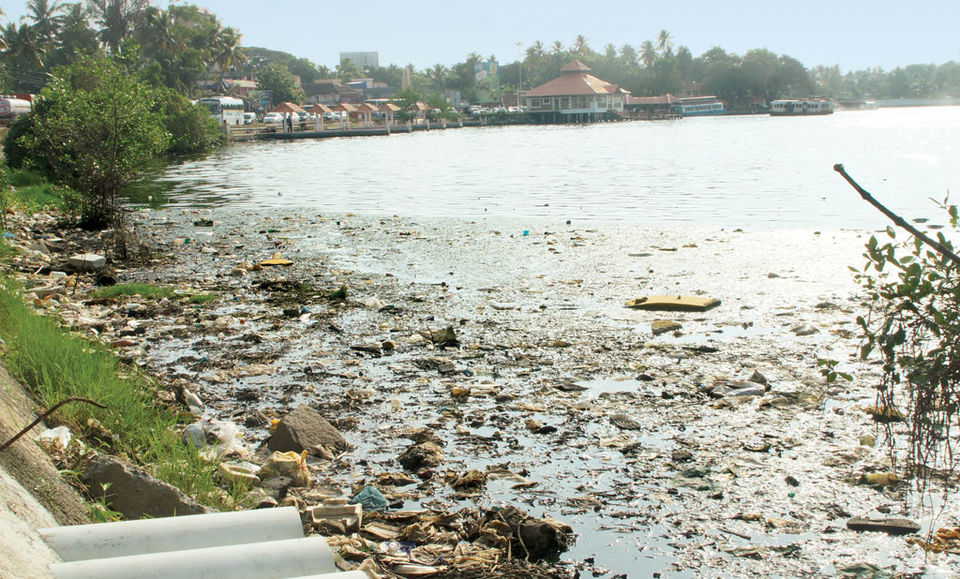
Kerala’s backwaters, like most other popular tourist destinations in the country, have fallen prey to aggressive and unsustainable tourism practices. The infrastructure is unable to support the ever growing number of tourists that flock the state each year.
The number of tourists visiting Kerala has doubled in the last ten years. According to the official numbers provided by the Kerala Tourism website, the state saw a footfall of over 10 million foreign tourists and over 14 million domestic tourists in 2017. It doesn't take a genius to figure out that this has also resulted in an increased production of waste. A report published last year in August in the Indian Express states that Kerala produces over 8,000 tonnes of solid municipal waste every day! With poor measures of waste disposal in place, most of it either ends up at sea, in the backwaters, or in landfills that once again leech toxins into the groundwater.
Boom of houseboats and domestic tourists is to blame?
The promotion of Kerala as "God's Own Country" started somewhere in the 1990s, which is also when the first few houseboats appeared on the state's map. But it was only with the turn of the century that these really became popular with domestic tourists. What prompted the sudden boost was then Prime Minister Atal Bihari Vajpayee's visit to the state in the year 2000.
"The transformation to the present form of houseboat tourism started only after the boom in domestic tourism in the state. Unlike foreign tourists, locals have very different habits and priorities." – Josekutty Joseph, president, All Kerala Houseboat Owners’ Association.
The number of houseboats in the backwaters is way more than their capacity to accommodate. Joseph says that there are 1,200 houseboats currently operating in Alleppey, of which only about 730 or so are registered. "In addition to about 400-500 illegal, unregistered boats, operating in the region, there is also the problem of boats from other districts making there way to the lake and overcrowding it," says Joseph.
Now, houseboats are not to be blamed for the entirety of problems facing the backwaters. There are a number of other issues, and we will get to them later in the article. But according to a 2015 study on the Vembanad Lake ecosystem (one of the most popular houseboat sites) by Nansen Environmental Research Centre India, houseboats are the cause of two major sources of pollution in the lake — faecal matter and polycyclic aromatic hydrocarbon pollution caused by the spilling of fuel.
This is after orders were passed in 2012 for all houseboats to have inboard engines and bio-toilets that emptied their waste periodically at a Septic Treatment Plant (STP) set up on the mainland. However, while inboard engines are now a reality, most boats still use kerosene-fuelled generators, which results in spills. And the visit to the STPs, which are supposed to be done once in every four months or so by every houseboat, are not regulated.
The problems are manifold
"While houseboats do contribute to the problem, they're not the only reason for the rising pollution levels in the backwaters," says Josekutty Joseph. He sheds light on the number of reasons why the backwaters are suffering.
---> One major problem is the run-off of pesticides and fertilisers from fields bordering the backwaters. A paddy crop is sown every three months and heavy amounts of pesticides and fertilisers like urea, ammonium sulphate, etc. are sprayed to protect the crop from insects and pests. All of these leech directly into the backwaters, substantially increasing the toxin load in the water. This is very bad for the aquatic plants and animals. The Vembanad Lake annual fish count that is conducted every year in May has found that in the past 10 years, dissolved oxygen in the lake has fluctuated between 22 percent and 87 percent, and acidity has swung between pH 5 (acidic) and pH 9 (basic). As a result the marine plants and animals are severely affected. Several native species of fish have completely died out while several others have also sprung up!
---> Another major issue is that several villages set up on the banks of the backwaters still do not have proper toilets and sanitation. Most villagers do their business directly in the water. And the villages that do have toilets, drain the sewage into the water.
---> Dumping of industrial solvents, chemicals and even liquor into the lake is also a major problem. Especially in the industrial areas surrounding the lake, there is no provision to treat the chemical waste before dumping it into the water.
---> Duck farming in the backwaters is another major source of pollutions. Ducks are reared farms set up along the backwaters and there is no proper way to dispose off their dropping. There are a total of 84 duck cleaning centres, that just collect waste generated by the bird in plastic bags and throw it into the lake.
---> A number of tourists are known to dump plastic waste into the lakes, which chokes up the aquatic flora and fauna, substantially affecting the oxygen levels in the water. Plastic also releases toxins into the water and reduces the ecosystem's natural capability to regenerate.
---> There have also been reports of the privacy and culture of locals living along the backwaters being invaded because of tourist boats venturing into areas overlooking private houses.
So, how can you help?
---> Don't throw garbage in the water or on the streets.
---> If you're going on a houseboat, talk to the manager/owner beforehand to check whether the boat is following regulations, going to STPs to get its bio toilets cleaned regularly, and whether it is registered with the All Kerala Houseboats Owners' Association, before going on board.
---> Refrain from buying plastic bottles or taking plastic bags when purchasing stuff. One simple step can help reduce a huge load on the planet. If you do, carry it with you and dispose of it at a proper place.
---> Strike up a conversation with locals whenever you can about the issue. You can help spread awareness in your own small way.
Meanwhile, administrative changes are also required to bring about a holistic change in the situation. "While several measures are being taken as we speak," says Joseph, "a lot more needs to be done to bring the situation under control." He sheds light on what the need of the hour is:
---> We are in the process of setting up mobile sewage treatment plants to regulate waste disposal better for houseboats and they will start in the next few months. But given the condition of the lake, there is need to set up more aerobic treatment plants, compost-making plants to convert sewage into compost that can be used in fields instead of chemical fertilisers.
---> Several organisations, like the Houseboat Owners Association, have taken it upon themselves to spread awareness among locals and tourists alike, there is need for large scale awareness drives for local villagers and boat owners to make them aware of the situation. Kanj Saurav, a travel writer, who visited the backwaters last year, also noted that there are no signboards or notices anywhere that can make tourists aware of the situation.
---> Stricter regulations need to be placed on houseboats to regulate the disposal of waste they generate.
Tourism has been the backbone of Kerala for over a decade now but increased tourism shouldn't have to translate into pollution and exploitation of natural resources. Next time you're travelling to God's Own Country, take a pledge to #LeaveNoTrace and encourage others to do the same.
Read more about responsible tourism:
Have We Ruined McLeod Ganj Forever by Sreshti Verma
A Dummies Guide To Responsible Travel: Indian Edition by Sreshti Verma
Frequently Used Bits of Plastic That Are Turning Our Favourite Destinations Into Plastic Graveyards by Disha Kapkoti
We Have Ruined Kasol Forever. But Is It Too Late To Save Parvati Valley? by Sreshti Verma
Exposing The Unknown Cruelty Behind Those "Fun" Animal Rides by Trisha Singh
'3 Idiots' Has Brought A Bunch Of Idiots To Pangong Tso And We Really Need To Talk About It by Disha Kapkoti
Have something to share? Write about it on Tripoto and help spread the word about responsible tourism.
You may also like to read: wild waters




